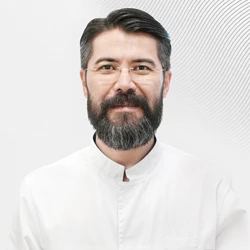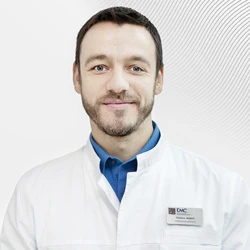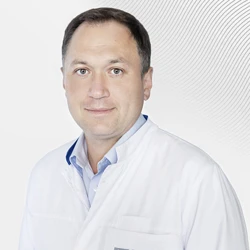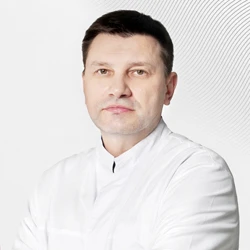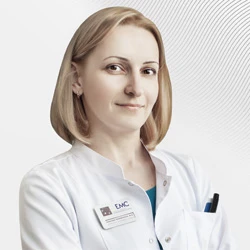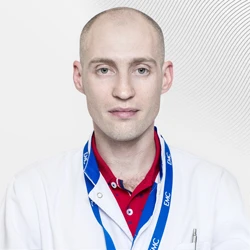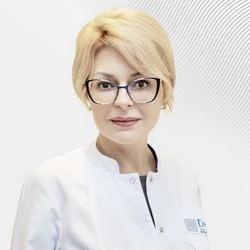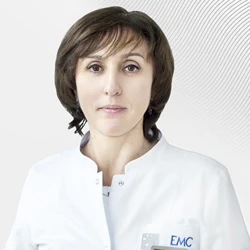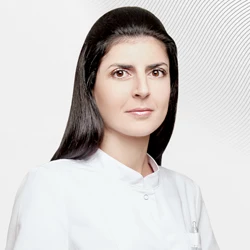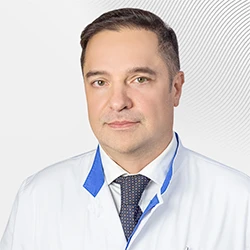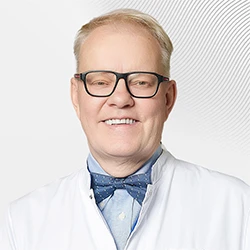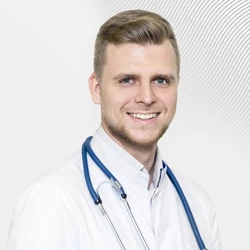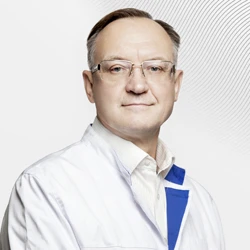Targeted therapy
Targeted therapy in oncology
How does targeted therapy work
- they multiply uncontrollably
- over time, a malignant tumor forms, the cells of which can detach from the main focus and move through the body
- they live not only in the tissue where they were formed, they move around the body, become fixed in other organs and create metastases in them – additional oncological neoplasms
- they do not die at the end of the correct life cycle and exist for an extremely long time
If the drugs find the above differences, they begin to perform their tasks:
- some of them identify and destroy the wrong cells
- other means stop their growth and division
- others deliver other drugs to them, for example, chemotherapeutic
- the fourth causes the immune system to attack the neoplasm The fifth stop the growth of vessels feeding the tumor.
Such substances do not help all cancer patients simply because modern science has not yet managed to identify all possible errors in the genes, but in some cases they are one of the main methods of treatment. The possibility of prescribing them depends on the type of cancer, its stage, and other appropriate therapies. Targeted therapy drugs are selected individually, based on the results of blood tests or < span style="color: #790000;">biopsies– collection of a small amount of tumor tissue and examination of its properties in the laboratory.
Targeted and chemotherapy
Targeted drugs have several features that distinguish them from other anti-cancer drugs:
- They "target" altered cells and have almost no effect on normal tissues. Conventional chemotherapy, on the contrary, is cytotoxic – it damages both tumor and normal cells, and causes more damage to tissues in general
- Most targeted drugs prevent dangerous cells from multiplying and prevent or slow down their further reproduction. The standard "chemistry" destroys the already formed foci of the disease.
Types of targeted oncology therapy
Modern science has created four main types of targeted therapy:
-
Monoclonal antibodies - they work as an independent medicine or as a means of delivering active substances to dangerous cells. Some of these drugs are classified as immunotherapy because they seek, find, and attack a specific target on an altered cell. Other drugs act as immunotherapy, since their main task is to activate the immune system and help it identify and destroy cancer foci. - Angiogenesis inhibitors. They prevent the proliferation of new blood vessels that feed the tumor and help it grow
- proteasome inhibitors - they disrupt vital processes in cells, causing their death
- signal transduction inhibitors - they do not allow intercellular signaling molecules to work, and actually change the work of the tumor cell
Targeted therapy with monoclonal antibodies
Antibodies are proteins produced by our body that detect antigens – foreign proteins, combine with them and turn them into a target for various components of the immune system. They constantly circulate in the blood and help us fight infections.
When the body lacks natural defenses, science comes to its aid – drugs containing monoclonal antibodies created in the laboratory, that is, identical antibodies. Their names always end in –mab: for example, trastuzumab, bevacizumab, pertuzumab and rituximab.
Each such agent finds and recognizes one specific protein on a cancer cell, and all substances act differently.:
-
Tumors usually produce a large number of special molecules, the so–called growth factor receptors, which are located on the cell surface and transmit signals to it that help it survive and divide quickly. Some targeted drugs disrupt their work, as a result of which the cell does not receive important messages and can no longer reproduce.
Some drugs work as "couriers" that identify disease foci and deliver compounds that destroy altered cells, including radioactive ones. Such agents are called conjugated monoclonal antibodies
- other drugs affect the immune system, helping it identify and destroy danger -checkpoint inhibitors block the work of proteins that enable abnormal cells to disguise themselves as normal ones and prevent attacks by our natural defenses- other substances combine with altered cells and turn them into targets for our "security system" Certain altered cells produce a special VEGF protein, endothelial growth factor, which attaches to the cells of the vascular walls in the neoplasm. As a result, the circulatory network grows, provides more nutrition to the tumor and accelerates its development. Monoclonal antibodies, or antiangiogenic drugs, do not allow VEGF to bind to vascular cells, and do not allow the focus of the disease to increase.
Side effects of monoclonal antibodies
Any effective treatment for cancer has side effects, and monoclonal antibodies are no exception. They may include:
-
allergic reactions that often occur at the first application of such substances. In such cases, patients may experience shortness of breath – a feeling of lack of air, chills and fever, an itchy rash on the skin, weakness and hot flashes – a feeling of intense heat spreading throughout the body
- skin reactions – redness, soreness and rashes
- diarrhea
- fatigue
- flu-like symptoms: fever, dizziness and chills
- general feeling unwell
Some of the monoclonal antibodies can cause severe side effects, such as heart problems or an increased risk of bleeding.
Blockers or inhibitors of cancer growth
Growth factors are compounds produced by the body that control cell development.
One part of them tells the cells what functions they need to perform, the other stimulates their reproduction, the third slows down their growth and causes death. Their mechanism of operation is complex – they bind to receptors, or special proteins on the cell surface, and send them a signal that triggers a chain of chemical reactions.
There are several types of similar substances and their receptors in our body.:
- EGF, or the epidermal factor that controls cell growth
- VEGF, or blood vessel endothelial growth factor, which regulates their development
- PDGF, a platelet growth factor that controls the proliferation of blood vessels and their cells FGF, a growth factor of fibroblasts, cells that produce components responsible for the firmness and elasticity of the skin.
Targeted drugs slow down or prevent the division of tumor cells in several ways:
- they reduce the amount of growth-stimulating substances in the body
- their receptors on tumor cells are "turned off" or they block signals in the cell itself, which are triggered when the growth factor receptor is activated.
Today, scientists have managed to create several types of similar drugs, including:
-
Tyrosine kinase inhibitors that inhibit the work of compounds that stimulate cell growth and reproduction. These include drugs such as axitinib, dasatinib, erlotinib, imatinib, nilotinib, pazopanib and sunitinib
- inhibitors of proteasomes, structures present in all cells of the body. They are involved in breaking down unnecessary proteins into their components and using them to produce the necessary compounds. Drugs such as bortezomib, carfilzomib and ixazomib lead to the accumulation of these "waste" proteins and the death of cancer cells mTOR inhibitors are proteins that cause cells to produce substances that trigger their growth or force them to produce proteins that stimulate the proliferation of additional vessels. With the help of mTOR blockers, such as temsirolimus and everolimus, it is possible to stop the development of some tumors Inhibitors of PI3K, or phosphoinositide-3 kinase– are proteins that act as switches, triggering the production of other proteins such as mTOR. Some cancers cause PI3K to work constantly, causing the altered cells to grow uncontrollably. Drugs such as idelalisib "turn off" PI3K and prolong the patient's life HDAC, HDI, or histone deacetylase inhibitors are substances that remove certain chemical compounds from proteins. As a result, the cell cannot use certain genes that help it grow and reproduce, and eventually dies. These include panobinostat, which is used to treat myeloma that affects the immune system, bone marrow, bones and other organs BRAF inhibitors that control the protein of the same name, which stimulates cell proliferation and is found in excess in some tumors. Their growth is stopped by drugs such as vemurafenib, dabrafenib and encorafenib
- inhibitors of MEK, a protein that causes cells to divide uncontrollably. You can "turn off" MEK with trametinib and bimetinib. Such substances are often prescribed in conjunction with a BRAF inhibitor, which affects the production of MEK
- CDK4/6 inhibitors. The drugs palbociclib, ribociclib and abemaciclib block special proteins CDK4 and CDK6 in cells breast cancer, stop their division and tumor development. They are prescribed to combat neoplasms that contain receptors that respond to hormones: estrogen, which is necessary for the proper functioning of the female reproductive system, and progesterone, which prepares the body for pregnancy.
Side effects of growth factor inhibitors
This type of targeted drugs can cause:
- fatigue
- diarrhea
- skin problems such as rashes or the disappearance of normal-color pigments
- loss of appetite
- weakness
- pain in mouth
- edema due to accumulation of fluid in the tissues
- lack of some important substances in the blood
Vascular growth blockers
A cancerous tumor needs a good blood supply, providing it with food and oxygen, and removing waste products. As soon as it reaches a size of 1-2 mm in diameter, it requires more and more blood for further development. To do this, her cells produce VEGF protein, which attaches to the cells lining the vessel walls and stimulates their reproduction.
In such cases, targeted medications that perform various tasks come to the rescue.:
-
antiangiogenic drugs block VEGF, stop their growth and prevent the neoplasm from growing, and in some cases, reduce it. These include bevacizumab, which is also a monoclonal antibody, aflibercept, and ramucirumab
Tyrosine kinase inhibitors prevent VEGF receptors from sending messages that stimulate the proliferation of cells in the bloodstream. They include such drugs as sunitinib, sorafenib, axitinib, regorafenib and cabozantinib
Some drugs, such as thalidomide and lenalidomide, act on compounds that transmit intercellular signals. If such messages stop reaching the addressee, the formation of new vessels stops
PARP inhibitors
PARP is a protein essential for repairing damaged cells. PARP inhibitors prevent the healing of tumor cells and accelerate their death.
Today, medications such as olaparib, rucaparib, and niraparib are prescribed for cancer of the ovaries, fallopian tubes and peritoneum.
Currently, research is underway to explore the possibility of using PARP inhibitors in lung cancer, pancreaticand prostateglands, stomachand esophagus, uterusand its necks, kidney, of the bladder, as well as neoplasms of the headand neck.
Side effects of PARP inhibitors
Usually, patients who receive them have:
- fatigue
- diarrhea, upset stomach and taste changes
- headaches and dizziness
- liver and kidney disorders
- poor general health
- increased risk of infections, fatigue, and shortness of breath due to decreased blood cell count
Targeted therapy in EMC
Cancer treatment at the European Medical Center in Moscow is based on the most advanced European and American protocols, efficiency, safety and maximum comfort.
Treatment regimens are drawn up individually for each patient, according to genetic and other research data, and are prescribed by decision of a council consisting of a team of highly qualified professionals of various specialties.
We use only original targeted drugs that stop or slow down the development of cancer, we provide any necessary assistance 24 hours a day, including emergency care, and we always stay in touch.
Sources:
https://www.cancer.org/treatment/treatments-and-side-effects/treatment-types/targeted-therapy.html
https://www.cancer.org/treatment/treatments-and-side-effects/treatment-types/targeted-therapy/what-i...
https://www.cancerresearchuk.org/about-cancer/cancer-in-general/treatment/targeted-cancer-drugs/what...
https://www.cancerresearchuk.org/about-cancer/cancer-in-general/treatment/targeted-cancer-drugs/type...
https://www.cancer.gov/about-cancer/treatment/types/targeted-therapies
Make an appointment for a consultation and we will contact you for more details
Why the EMC
The first and only clinic in Russia, created in the image of the world's leading clinics
EMC is a multidisciplinary center offering patients a high level of medical services and a personalized approach
Worldwide recognition and awards
 Learn more
Learn more
Worldwide recognition and awards
 Certificates and licenses
Certificates and licenses
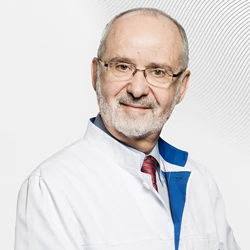
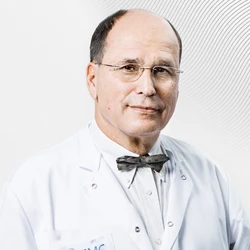
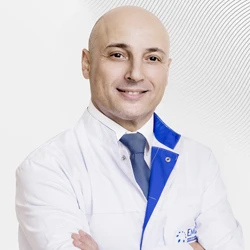
.webp)
